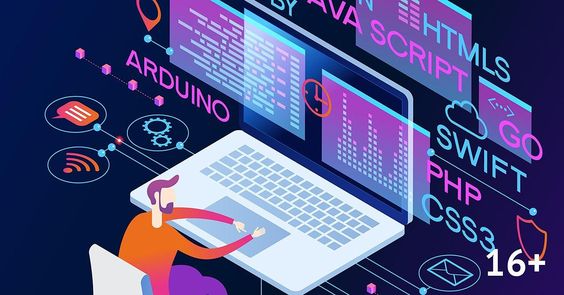Mastering the Art of Coding: Effective Strategies to Practice and Improve
Introduction:
Coding is a skill that has become increasingly important in today's technology-driven world. Whether you're a seasoned programmer or just starting your coding journey, continuous practice is key to honing your skills and staying up-to-date with the latest technologies. In this blog, we'll explore some effective strategies for practicing coding and improving your programming abilities.
1. Set Clear Goals:
Before diving into coding practice, it's essential to set clear and specific goals. Ask yourself what you want to achieve with your coding practice. Are you aiming to become proficient in a particular programming language, improve problem-solving skills, or prepare for coding interviews? Setting goals helps you stay focused and motivated throughout your coding journey.
2. Choose the Right Programming Language:
Selecting the right programming language for your practice is crucial. If you're a beginner, start with a language like Python, which is known for its simplicity and versatility. For more advanced coders, choose a language that aligns with your goals and interests, such as Java, C++, or JavaScript. Tailoring your language to your goals will make practice more engaging and relevant.
3. Solve Real-World Problems:
One of the most effective ways to practice coding is by solving real-world problems. Platforms like LeetCode, HackerRank, and CodeSignal offer a wide range of coding challenges that mimic the types of problems you might encounter in software development or coding interviews. Solving these challenges not only improves your coding skills but also enhances your problem-solving abilities.
4. Work on Personal Projects:
Personal projects are a fantastic way to practice coding and apply your skills to real-world scenarios. Choose a project that interests you, whether it's a website, mobile app, game, or automation tool. By working on these projects, you'll gain hands-on experience, encounter challenges, and learn to manage the entire software development process.
5. Collaborate and Seek Feedback:
Coding is often a collaborative endeavor. Don't hesitate to seek feedback from peers, mentors, or online communities. Platforms like GitHub allow you to collaborate on open-source projects, share your code, and receive feedback from experienced developers. Constructive criticism can help you identify areas for improvement and gain new insights into coding practices.
6. Learn Data Structures and Algorithms:
Understanding data structures and algorithms is fundamental to becoming a proficient coder. Dedicate time to learning and practicing these concepts. There are many online resources, courses, and books available to help you grasp the foundations of these crucial topics. Mastering them will enable you to write more efficient and optimized code.
7. Keep Abreast of Industry Trends:
The tech industry evolves rapidly, with new programming languages, frameworks, and tools emerging frequently. To stay competitive and relevant, make it a habit to keep up with industry trends and advancements. Follow tech blogs, attend conferences, and engage with developer communities to stay informed about the latest developments in coding.
8. Practice Regularly:
Consistency is the key to improvement. Set aside dedicated time for coding practice each day or week, depending on your schedule. Even as little as 15-30 minutes of daily coding can make a significant difference over time. Overcoming coding challenges and building a strong foundation requires regular practice.
Conclusion:
Practicing coding is a continuous journey that can lead to tremendous personal and professional growth. By setting clear goals, choosing the right programming language, solving real-world problems, working on personal projects, seeking feedback, learning data structures and algorithms, staying updated with industry trends, and practicing regularly, you can enhance your coding skills and become a more proficient programmer. So, roll up your sleeves, grab your favorite IDE, and embark on your coding practice journey today!!

Comments
Post a Comment